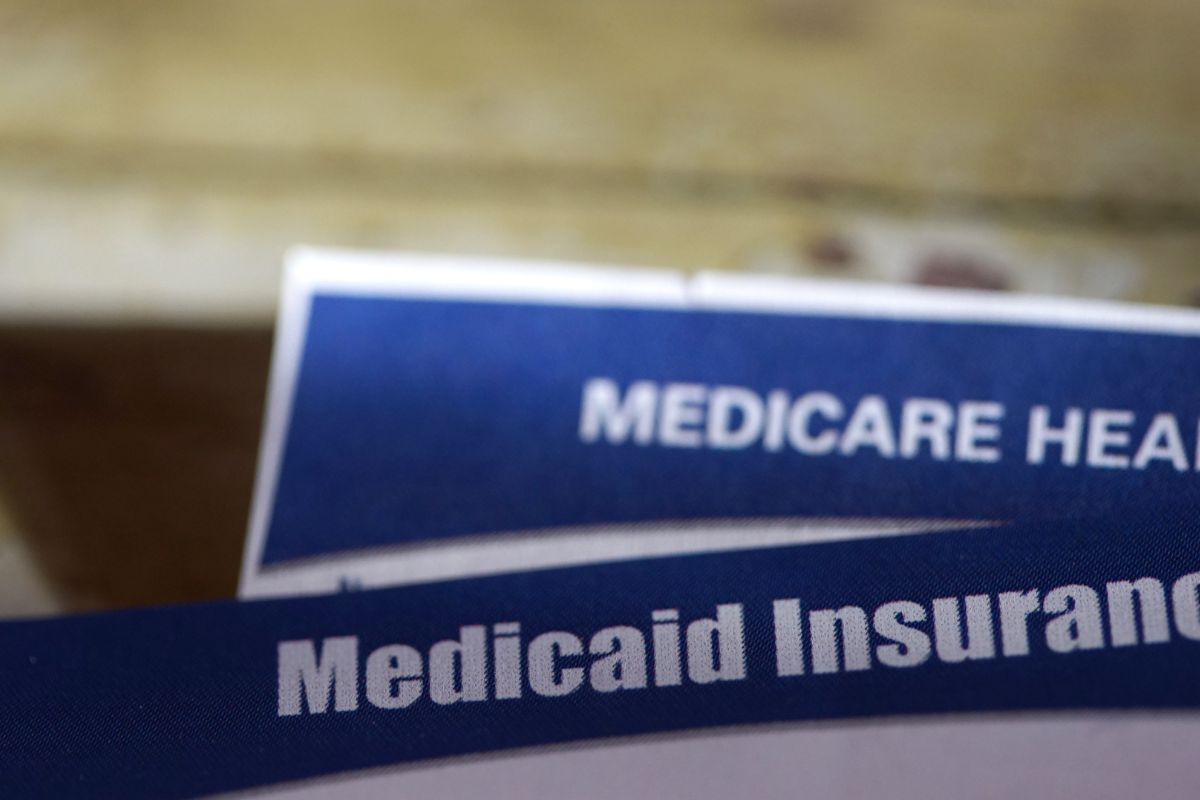
What Is the Difference Between Medicare and Medicaid?
It’s easy to get Medicare and Medicaid confused. The words themselves are similar, and both programs assist people with healthcare costs. The difference between Medicare and Medicaid comes down to the groups of people they serve. Medicare primarily offers health insurance for people who are 65 and older, while Medicaid is for people of any age who have limited income.
Today, we’re going to help you understand the differences between these two federal programs and go through the general eligibility requirements of each.
What Is Medicare?
Medicare is a federal government program that was created to offer individuals healthcare coverage during retirement. The program has been around since President Lyndon Johnson enacted it in 1965.
Most people become eligible for Medicare when they turn 65. If you’ve worked at least ten years - or 40 quarters - you’re eligible for premium-free hospital benefits (Part A). You can also become eligible for Medicare if you’ve been receiving Social Security disability benefits for 24 months or if you get diagnosed with Lou Gehrig’s disease or End-Stage Renal Disease (ESRD).
Medicare does not have any income requirements. As long as you are a U.S. citizen or permanent legal resident and meet the requirements we just mentioned, you are eligible to enroll in Medicare.
How Much Does Medicare Cost?
A big difference between Medicare and Medicaid is cost. Medicare is not free. While most beneficiaries are eligible for premium-free Part A, most people pay a premium for Part B. The government sets a standard premium for Part B each year. If you’ve earned a high income in the recent past, you may even be subject to a higher premium.
Outside of the premiums, you’ll have to pay deductibles, copays, and coinsurance costs. Plus, you’ll likely need to enroll in supplemental coverage like a Medigap and Medicare Part D plan. You could also enroll in Medicare Advantage (Part C), which also has costs associated with it. Medigap, Part C, and Part D plans are offered by private insurers, so costs will vary by plan.
What Is Medicaid?
Medicaid is an initiative designed to provide healthcare services to individuals with low income, with a primary focus on children.
In 2015, slightly less than half of the total Medicaid funding was allocated to the healthcare needs of minor children. The program extends its benefits to encompass older adults, individuals with disabilities, pregnant women, and caretakers of children.
Operated at the state level, Medicaid is a voluntary program funded through a collaboration of state and federal tax resources. The voluntary nature of Medicaid grants states the flexibility to offer benefits to residents, with participation being optional. States choosing to participate must adhere to specific guidelines to secure funding from the federal government.
Right now, all states actively participate in Medicaid, with each state determining its unique income and eligibility criteria within the overarching federal guidelines. Eligibility requirements typically hinge on factors such as income, disability, pregnancy, age, household size, and household role.
While Medicaid covers some overlapping services with Medicare, such as hospital care and doctor visits, it also delivers additional benefits not covered by Medicare. Noteworthy examples include long-term custodial care, as well as vision and dental care.
How Much Does Medicaid Cost?
Medicaid does not have federal premium requirements, given its focus on individuals with already limited incomes. However, as states oversee the program, some states might implement premiums and other cost-sharing arrangements for beneficiaries.
While there aren’t currently any premiums for Medicaid, beneficiaries may encounter minimal out-of-pocket expenses such as copayments.
What Does Medicaid Cover?
Medicaid covers major medical expenses, but again, the coverage may vary a little depending on the state. To get federal funding, a state’s Medicaid program must provide the following coverage.
-
Inpatient and outpatient hospital services
-
Home healthcare services
-
Nursing home care
-
Care in rural health clinics
-
Doctor’s care
-
Lab testing
-
X-rays
-
Midwife services
-
Family planning services
-
Family nurse practitioner care
-
Pediatric care
-
Tobacco cessation programs for pregnant women
-
Transportation for medical care
-
Freestanding birth center services
-
Early and periodic screening, diagnostic, and treatment services
-
Prescription drug coverage (optional)
-
Dental, vision, and hearing care (optional)
-
Physical and occupational therapy (optional)
Dual Enrollment in Medicare and Medicaid
Individuals have the opportunity to qualify for and enroll in both Medicare and Medicaid simultaneously, leading to what is known as "dual eligibility." Those who fall under this category receive their healthcare services through specific Medicare Savings Programs.
At the height of dual eligibility is the status of a Qualified Medicare Beneficiary (QMB), entitling individuals to financial assistance covering Medicare premiums, deductibles, copays, and coinsurance. This proves beneficial, especially when assistance is needed for services not covered by Medicare, such as long-term care.
Medicare and Medicaid: Are You Eligible?
Need help determining if you’re eligible for both programs? Chat with a local Medicare advisor near you. Our team of experts understands the eligibility requirements of both programs, and we can help you navigate your benefits and enrollment options.
Still Have Medicare Questions?
Schedule a FREE Medicare plan consultation with an agent in your neighborhood.
Privacy and Security: Your privacy and security are extremely important to us. Your personal information is protected by our Privacy Policy
LocalMedicareSpecialists.com is privately owned and operated by LMS Insurance LLC. LocalMedicareSpecialists.com is a non-government resource for those who depend on Medicare, providing Medicare information in a simple and straightforward way.
We do not offer every plan available in your area. Currently we represent 11 organizations which offer 173 products in your area. Please contact Medicare.gov, 1-800-MEDICARE, or your local State Health Insurance Program (SHIP) to get information on all of your options.
